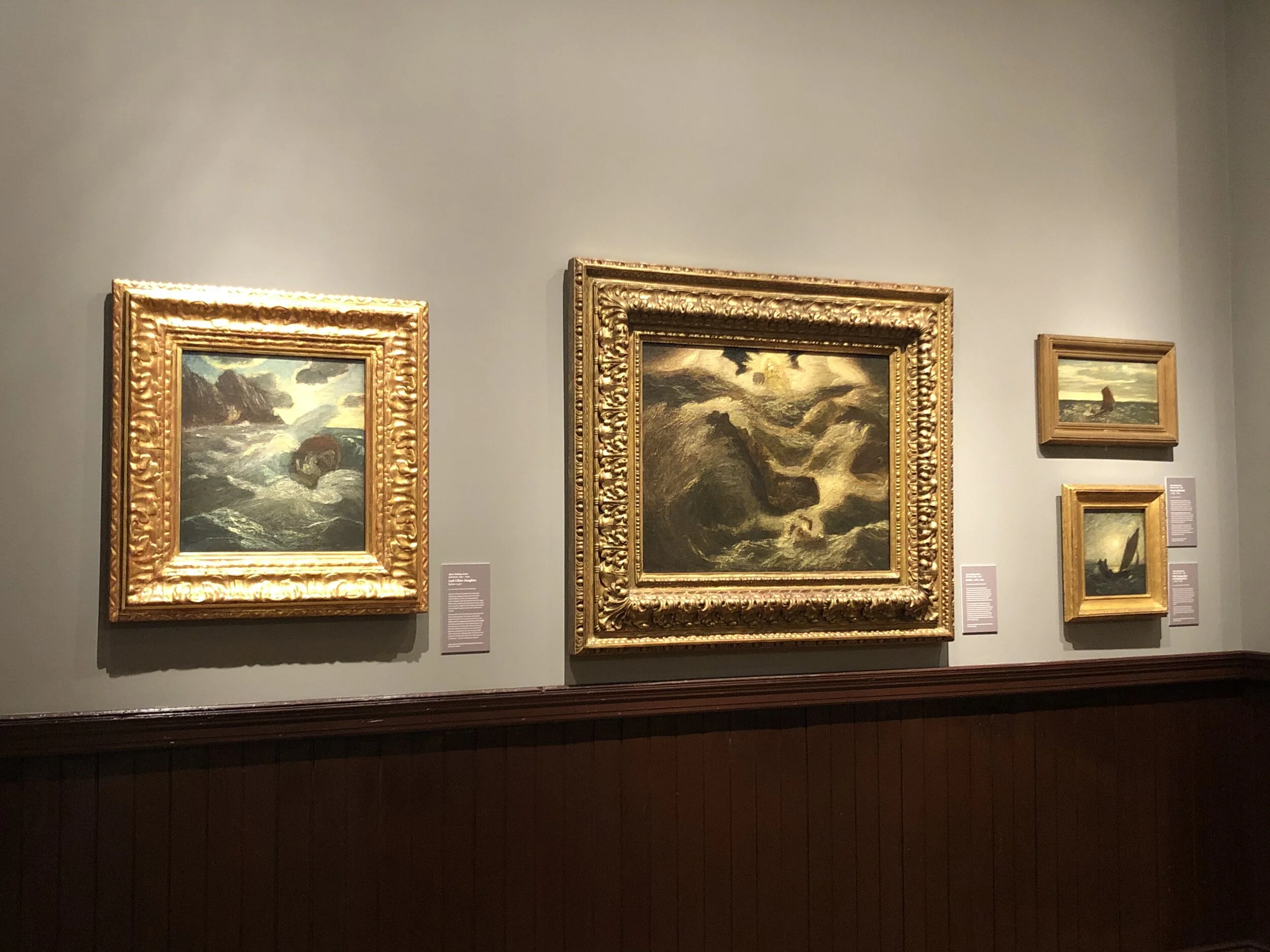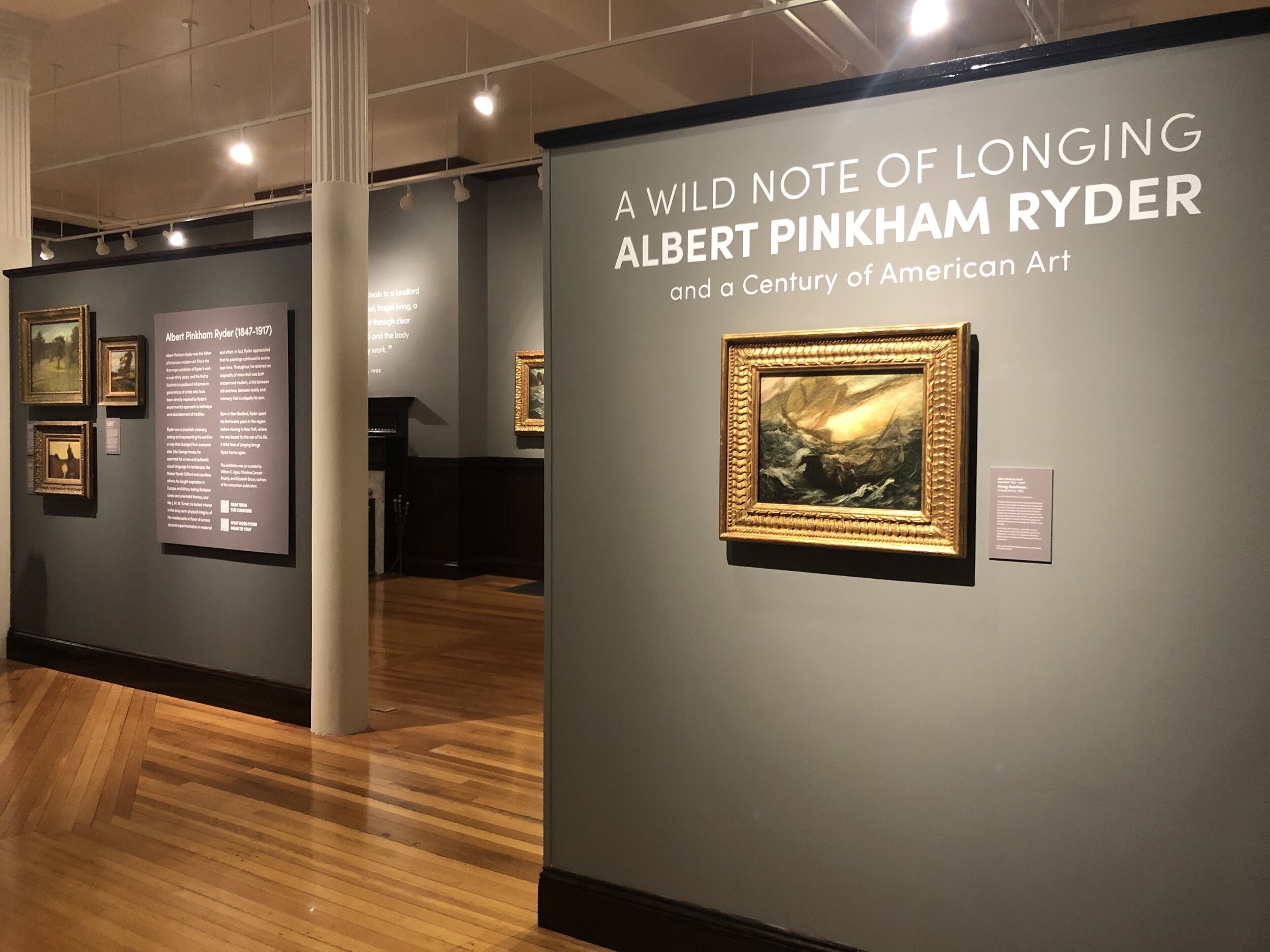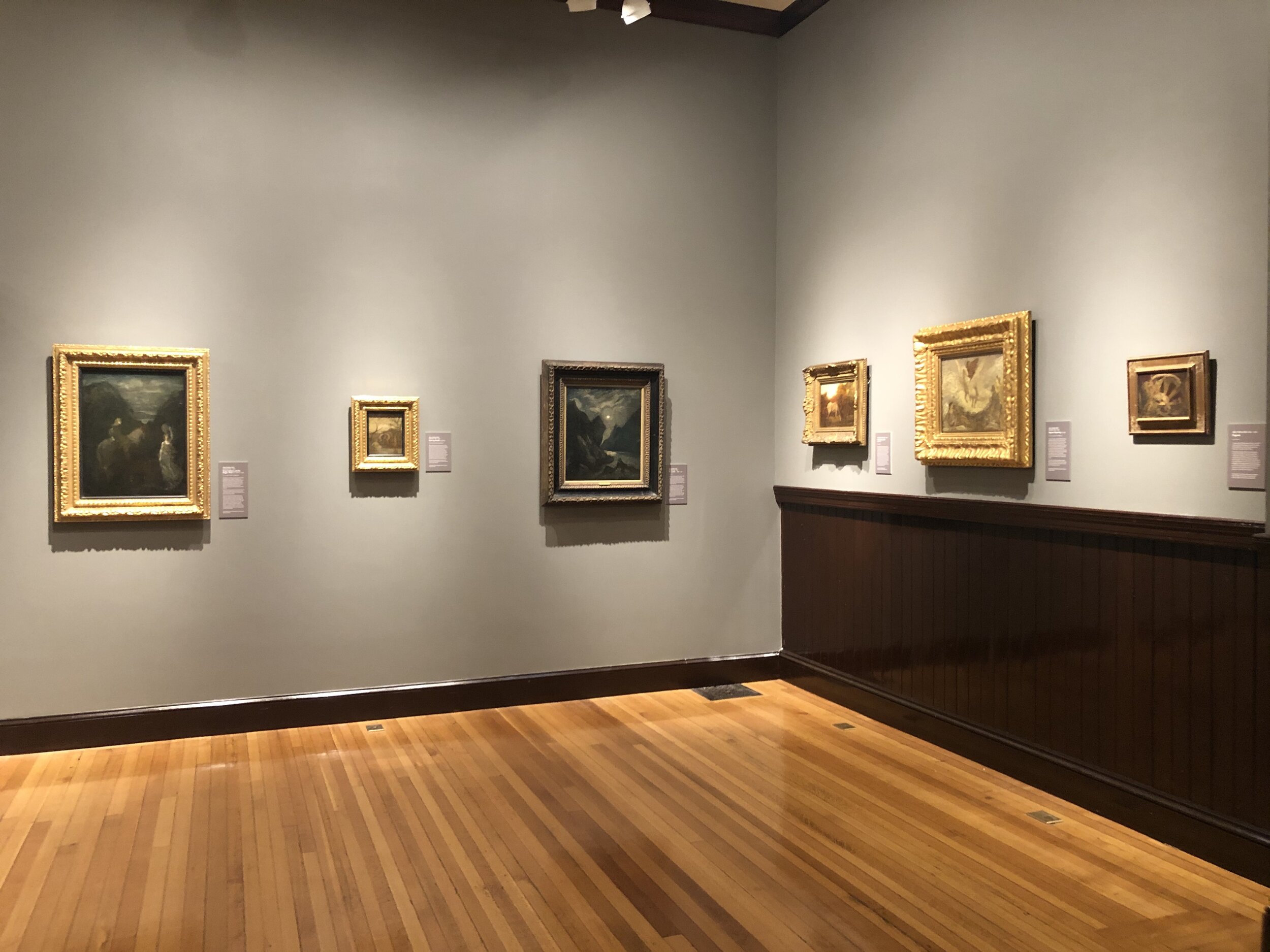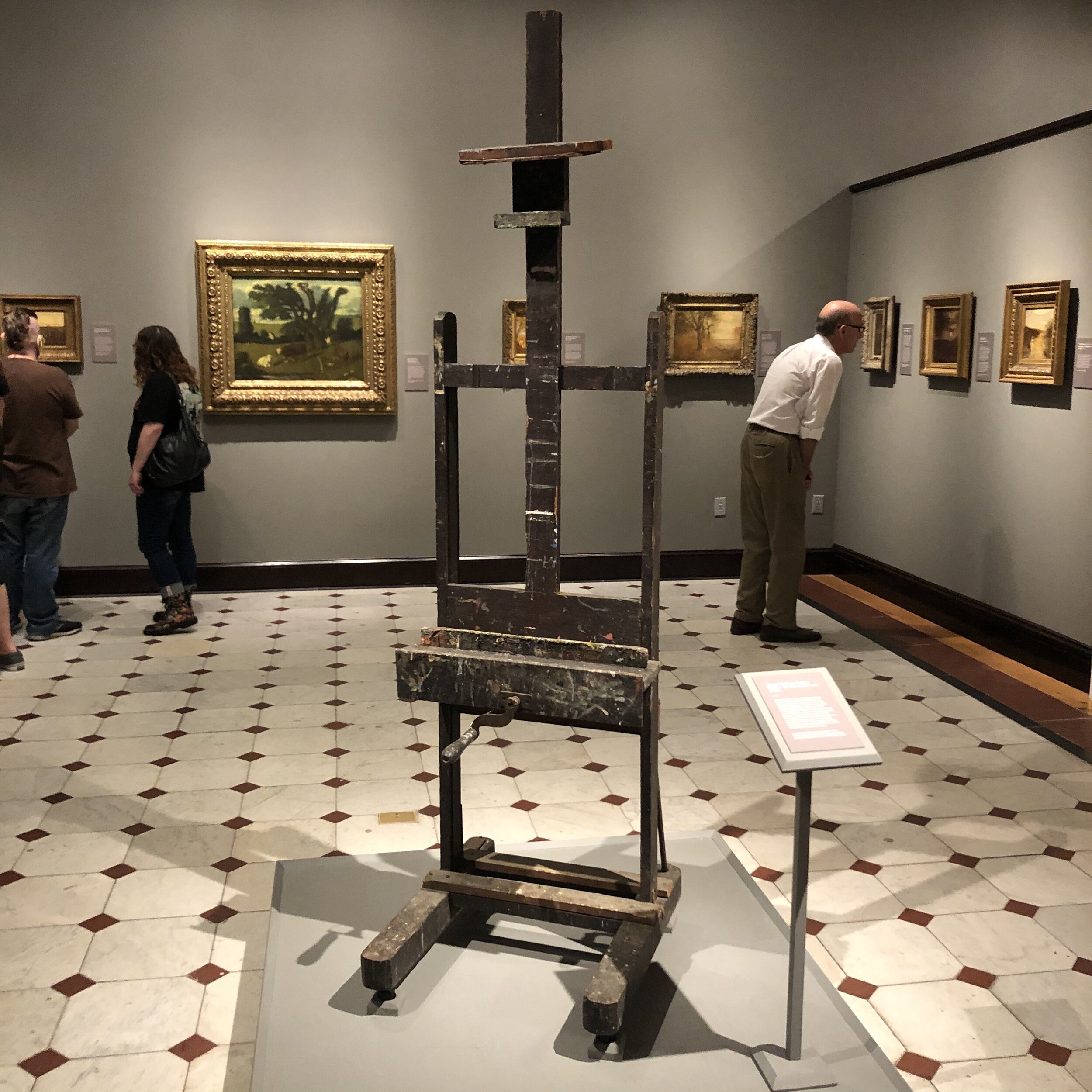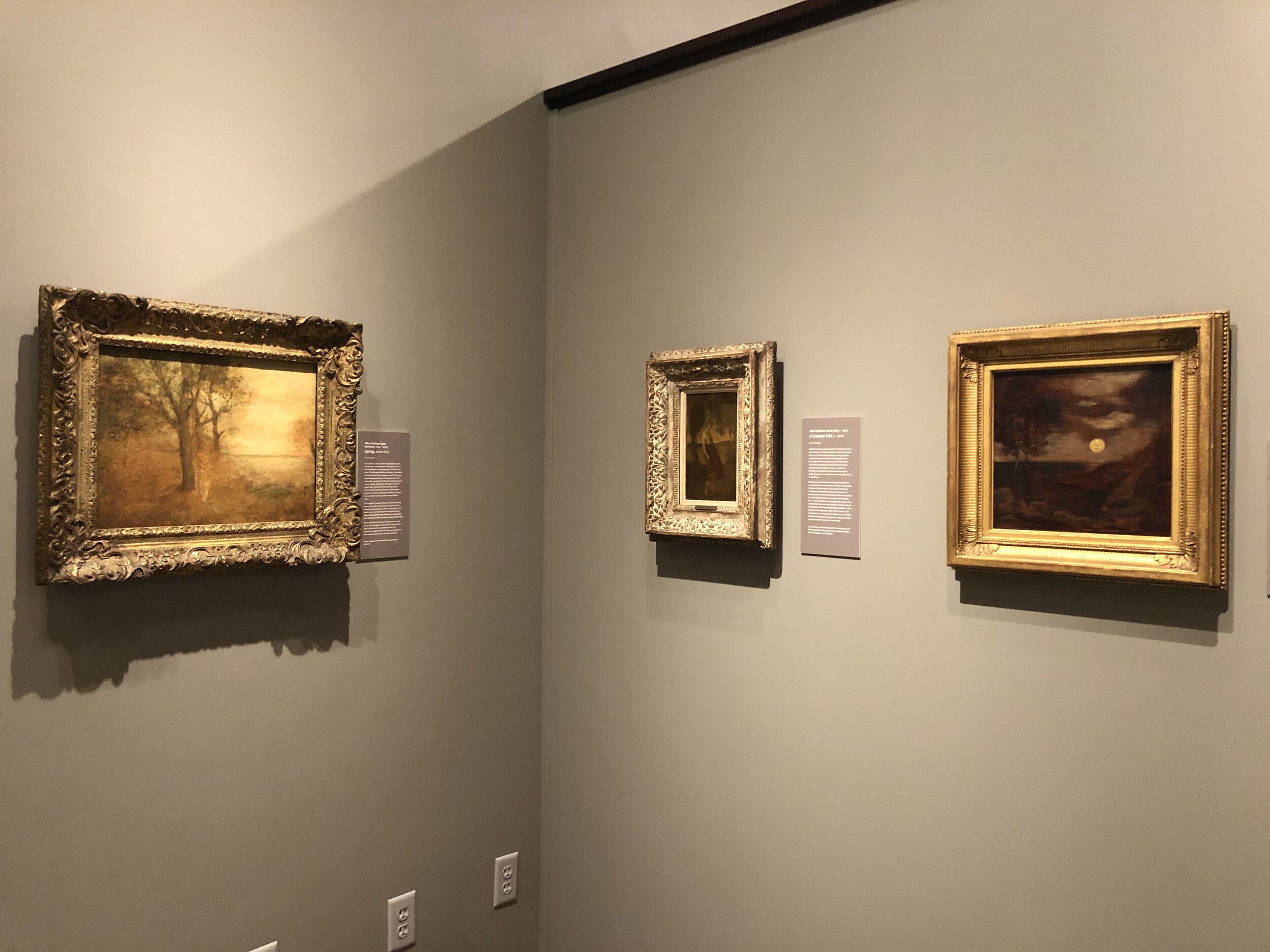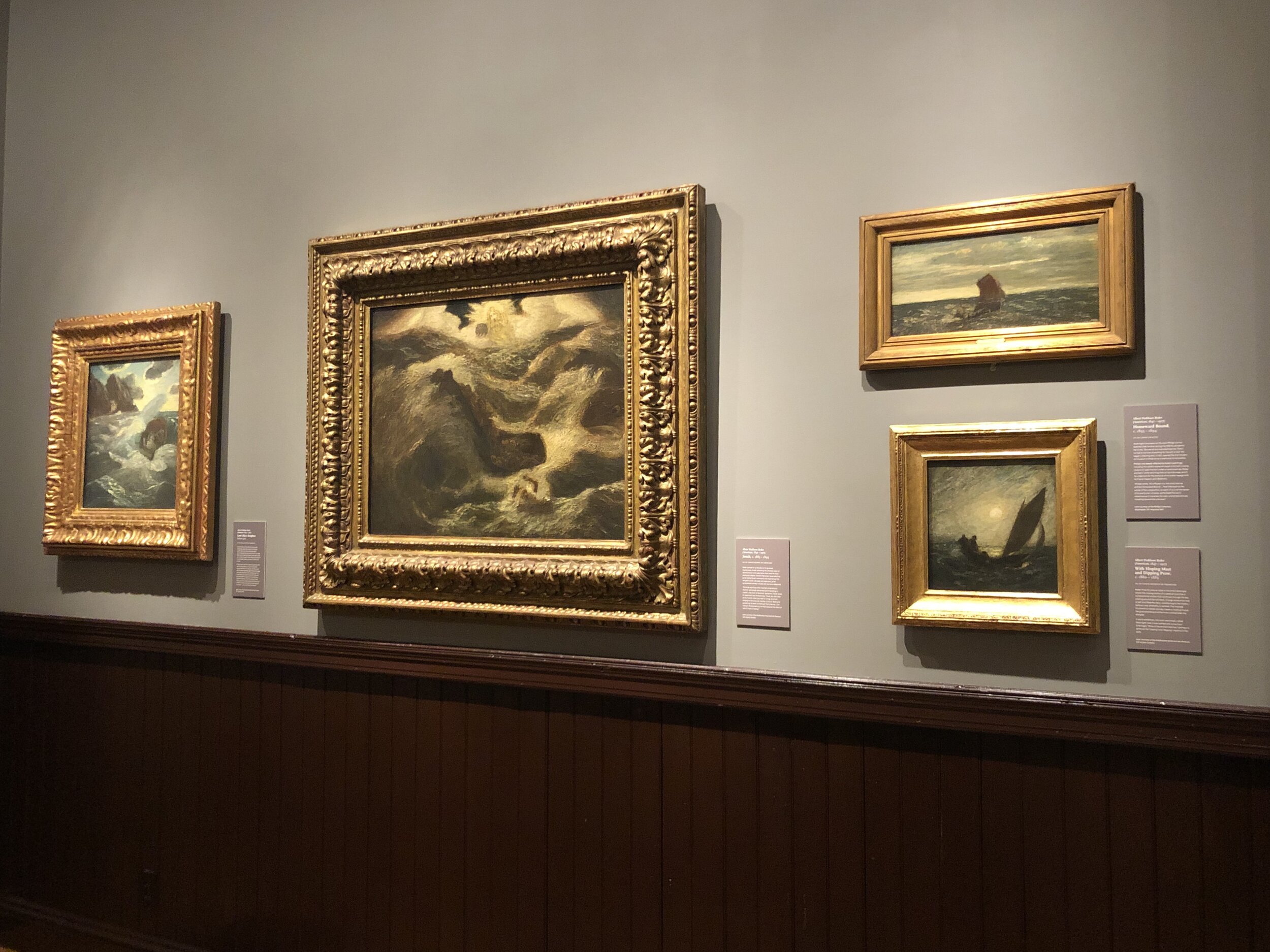Albert Pinkham Ryder (1847 - 1917), may not be a household name but his contributions to American art are significant. An exhibition on view through October in the artist’s birthplace of New Bedford, Massachusetts, explores his art in its own right as well as within the context of modernist movements that came in his wake. Mounted by the New Bedford Whaling Museum, the show is a rare and wonderful opportunity to see many of Ryder’s paintings in one place. A Wild Note of Longing: Albert Pinkham Ryder and a Century of American Art is a must-see exhibition which will reshape perceptions of American art history.
One of the most exciting elements of the show is that it gathers together many of the artist’s paintings in one exhibition. This is the first significant display of Ryder’s work since a 1990 retrospective at the Smithsonian Museum of American Art. Some of the paintings on view are indeed on loan from the same institution and give viewers the opportunity to explore works that they might otherwise have to travel to Washington, D.C. to experience. Other artworks come from major institutions like the Metropolitan Museum, the Brooklyn Museum, and the Phillips Collection, making this a mini-blockbuster exhibition.
A quote from Ryder illustrates his independent sensibilities alongside his paintings.
Seeing Ryder’s work in his hometown rather than in New York or the nation’s capital is part of the thrill of this show. Not far from the Whaling Museum’s galleries, the sights and sounds of this historic maritime city are reminders of some of Ryder’s inspirations. Bells are heard from nearby trawlers and seagulls fly low overhead. New Bedford’s bustling port is one of the busiest and most lucrative in the country. In Ryder’s day it was a similarly busy place and the realities of seafaring play into the aesthetic and philosophy of his art.
Ryder’s work is not easily classified but many of his treatments of land and sea bear markings most readily associated with the Tonalist school which heavily influenced American art in the late nineteenth century. Inspired by European counterparts, such artists often sought to create poetic and romantic imagery defined by particularly moody palettes. Where Ryder’s work often differs from his contemporaries is in brushwork, composition, and the sheer expressive energy of his scenes. Ryder’s paintings give viewers a sense of the raw power of the sea, the glittering beauty of atmosphere, and the possibilities of historical or mythological narratives.
A painting by Wolf Kahn (1927 - 2020) forms an interesting contrast to an earlier piece by Ryder.
The exhibition does not feature Ryder alone, though. The show pairs a wonderful range of the title artist’s paintings with works by later makers who similarly broke boundaries and reconsidered the potential of expression. Works by artists such as Jackson Pollock, Marsden Hartley, Wolf Kahn, and Richard Pousette-Dart form a fascinating pendant to the excellent selection of paintings on view by Ryder.
While Ryder was born in New Bedford, he spent a good portion of his adult life in New York before returning to his hometown at the time of his death. He was an unusual and often lone individual who cuts something of a melancholic figure. While his painterly contributions may not be fully appreciated by a broad audience, this exhibition is an important step in bringing viewers a more complete picture of American art. Ryder’s paintings are beautiful and mournful and provoke emotional reactions as well as appreciation for his remarkable handling of paint. He is, in short, one of the great American artists of any generation and this exhibition is a fantastic chance to learn more about him and his incredible impact.
A Wild Note of Longing: Albert Pinkham Ryder and a Century of American Art is on view at the New Bedford Whaling Museum through October 31, 2021. For full details and information on planning your visit, go to www.whalingmuseum.org.
